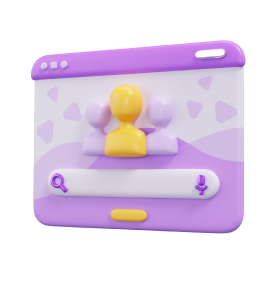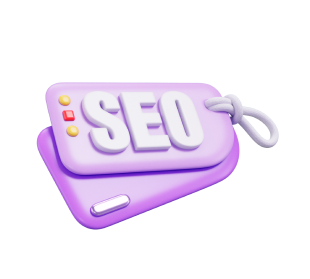Influencer Marketing
Marketing strategy is the main document on the basis of which companies plan the promotion and sales of goods and services.
Without an influencer marketing strategy, testing unrelated hypotheses for different promotion channels will require multiple sources. It will also be difficult to find the reasons for current performance, scale good results, and avoid repeating bad ones.
Influencer marketing is a marketing strategy in which companies work with opinion leaders (Influencers) to promote their brand or product. Influencers can be celebrities, experts in a particular field, or ordinary people with many followers on social media. In this article, we’ll look at strategies and marketing tactics for working with opinion leaders to promote your business.
Our Influencer Marketing Services
We offer the following influencer services in HumanswithAI:
What is Influencer Marketing?
Influencer marketing is the promotion of goods and services through the recommendations of influential people.
Influencer marketing usually means advertising through bloggers on social networks, but an influencer can be anyone whose opinion is trusted and willing to listen. In particular, Forbes suggests categorizing Influencers into 6 types:
- stars;
- journalists;
- prominent figures in the industry;
- analysts;
- intermediaries;
- influential personal brands.
In general, an opinion leader can even be a forum regular if he or she is known and respected for expertise and advice. Such influencers are called agents of influence. They don't necessarily have to be famous bloggers or experts, but they should influence other people's opinions with their actions and comments.
The basic principle of influencer marketing is native and unobtrusive advertising, presented as a friendly recommendation from a famous person. This type of advertising has existed for a very long time.

Influencer Campaign Strategy
Reach a wider audience and increase brand engagement through targeted influencer partnerships. At HumanswithAI , our team takes a comprehensive approach to your influencer marketing campaign, combining social media management and influencer marketing to maximize your reach. From selecting the right influencers across platforms like Instagram, TikTok, and YouTube, to creating data-driven campaigns that are tailored to your brand’s objectives, we guide you through every step of the process. We focus on crafting personalized strategies that align with your goals — whether it’s increasing brand awareness, driving website traffic, or boosting conversions. Additionally, we can manage and optimize your social media advertising on platforms like Instagram and Facebook, ensuring that your campaigns are seen by the right audience, at the right time.

Famous Bloggers
Want to increase your brand's credibility and reach? Partner with influential bloggers who can amplify your message to a dedicated, engaged audience. HumanswithAI connects you with leading content creators whose authentic endorsements can take your brand to the next level. Working with famous bloggers allows your brand to benefit from established trust and authority within their communities, which can result in higher levels of engagement. We help you identify bloggers who excel not only in written content but also across Instagram, TikTok, and YouTube, enabling you to reach audiences through different content formats (posts, stories, videos). We also integrate social media management (SMM) strategies and paid advertising to ensure that your collaboration with bloggers achieves the greatest possible impact.

Macro-influencers
A Macro Influencer gives you access to a large and engaged following (typically 100,000+). These influencers can amplify your brand's reach while maintaining authentic engagement. Our experts can help you work with influencers whose audiences align with your brand's values.
We’ll identify the perfect influencers and manage your collaborations with them on the most effective platforms.
Platforms:
- TikTok
- YouTube

Micro-influencers
Sometimes smaller is better. Micro-influencers may have smaller followings, but their audiences are highly engaged and loyal. This makes them ideal for targeted, niche campaigns. We can help you connect with the right micro-influencers to create campaigns that foster real connections.
We’ll help you establish successful collaborations with micro-influencers on platforms where their influence is most powerful.
Platforms:
- TikTok
- YouTube

Industry leaders
Collaborating with industry experts adds credibility to your brand. HumanswithAI helps you partner with respected thought leaders and influencers in your industry, ensuring your message reaches an audience that values their expertise and trust.
We will ensure strategic collaborations with industry leaders on platforms that will give your brand the best exposure.
Platforms:
- TikTok
- YouTube

Content Creators & Bloggers
If you need high quality, engaging content, working with bloggers, vloggers and podcasters is a smart choice. These content creators have mastered the art of storytelling and can help your brand share its message in a unique and compelling way.

Our pricing starts from
Choose your currency
What are the Benefits of Influencer Marketing for Brands
Here are the key features of influencer marketing:
Our cases
Real-world examples of successful reputation management strategies that delivered lasting impact for our clients
Influencer marketing on the main social media platforms
- Why is influencer marketing important in today's digital landscape?
- How does influencer marketing differ from traditional marketing methods?
- Key Elements of Influencer Marketing
- Identifying the Right Influencers for Your Brand
- Building Successful Influencer Partnerships
- Measuring the Impact of Influencer Marketing Campaigns
- Influencer marketing on the main social media platforms
Why is influencer marketing important in today's digital landscape?
Influencer marketing has become an important part of today's digital marketing space for several key reasons:
1. Audience trust
People trust recommendations from real people more, especially if they are opinion leaders they respect. Influencers create a sense of authenticity and help brands emotionally connect with their audience.
2. Spot impact
Influencers have a highly targeted and loyal audience, which allows brands to target specific market segments and increase the effectiveness of marketing campaigns.
3. Increased engagement
Instagram influencers’ publications often generate high levels of interaction - comments, likes, reposts. This not only increases brand awareness, but also contributes to the growth of organic reach.
4. Authenticity and content
Influencers create unique and creative content marketing that is perceived more naturally compared to traditional advertising. This helps brands look more human and modern.
5. High ROI
Studies show that Influencer marketing provides a high return on investment (ROI). The relatively small cost of partnering with Influencers can yield significant results in sales and recognition.
6. Adapting to digital trends
The digital space constantly evolves, and traditional advertising methods gradually lose effectiveness. Influencers actively use social media, which has become the main platform for socializing and consuming content creators.
7. Positive impact on the brand
Collaboration with popular and respected influencers can improve the brand's profile and make it more modern and appealing to the target audience.
8. Direct influence on purchases
Many influencers inspire their subscribers and directly influence their purchasing decisions. The peculiarity is that recommendations are often perceived as advice from a friend.
Influencer marketing is a powerful tool for building a brand, increasing trust, and boosting sales. In today's digital world, where audience attention is scattered, collaborating with influencers helps deliver key messages to the target audience effectively.

How does influencer marketing differ from traditional marketing methods?
Traditional marketing includes old advertising methods such as print ads, billboards, TV commercials, and radio spots. Think of traditional marketing as outbound marketing. It distracts consumers from their regular programs. Traditional marketing, whether online or offline, is an interruption or addition to what the audience is already consuming
Traditional online marketing can look like banner adverts on pages or pop-ups on websites that are not official brand sites. In essence, it fulfills the function of print advertisements in newspapers and magazines. The tactics, budgets, and goals of such adverts reflect the strategies of old traditional social media marketing, and of course, they usually do not involve influencers.
On the other hand, influencer marketing is a fresh, innovative approach based on digital technology. This influencer marketing strategy refers to social media influencer marketing that utilizes the followers of influencers. Influencers gain the trust of their niche audience by creating interesting and engaging content that audiences find credible and trustworthy.
Influencer subscribers can come in various numbers and niches, so you can be very specific about who you target and how much you want to spend. You can reach a wide audience with mega influencers whose audiences can be comparable to traditional advertising methods. Still, you can be much more detailed and targeted if you want to.
Influencer marketing is considered inbound because instead of interrupting the consumer experience with another type of media, the best influencer marketing hub creates interesting and valuable content for consumers that they actually want. Instead of taking you out of your element, it enhances it.
Another clear difference is that influencer marketing allows consumers to take the lead. Your target audience chooses which influencers to follow, hence the type of products advertised.

Key Elements of Influencer Marketing
Influencers play a key role in marketing strategies, linking brands and their target audience. Thanks to their authority and trusting relationships with followers, marketers can effectively promote products or services, creating a sense of authenticity and recommendations “from friends.” Their content generates more engagement than traditional advertising, and adapting to different platforms allows brands to reach a wide and narrow audience. In addition, collaboration with influencers helps improve a company’s image, increase brand awareness, and stimulate demand, making them an indispensable tool in modern marketing campaign.
Influencers exert significant psychological influence on consumer decisions due to several key factors. First, they trigger the social proof effect: people tend to trust products already recommended and used by others, especially if these recommendations come from reputable individuals. Second, the influence is enhanced by the identification principle: consumers see influencers as ideals or people they want to be like, which motivates them to repeat behavior, including purchases.
In addition, marketers use emotional attachment, creating a sense of closeness among followers through regular communication and personal content. This creates the illusion of a friendly relationship, which increases the trust in their recommendations.
Taken together, these psychological factors make influencers powerful tools for shaping consumer preferences and influencing the rational and emotional aspects of decision-making.
Influencers are classified into macro, micro, and nano influencers based on their audience size, engagement level, and consumer impact. Each category has its own characteristics and advantages.
- Macro influencers
These are opinion leaders with a large audience, usually from 100,000 to several million followers. They are known to the general public, often media personalities or stars. Macro influencers are suitable for large-scale campaigns aimed at increasing brand awareness. However, their audience may be less engaged, and the total cost of cooperation is high.
- Micro-influencers
This category has an audience ranging from 10 to 100 thousand followers. Micro-influencers specialize in certain niches like fitness, cosmetics, or technology. Their followers are usually more loyal and actively interact with the content. Cooperation with them provides targeted coverage and high engagement at moderate costs.
- Nano influencers
Nano influencers have a small audience, usually up to 10 thousand followers. Their strength is a high degree of trust, as they often interact with followers personally. They are ideal for local or highly specialized campaigns. Collaboration with them is available even for small brands and startups.

Identifying the Right Influencers for Your Brand
When researching and finding influencers for your brand, there are a few key points to consider. It is crucial to understand the importance of influencer marketing and its potential impact on your brand’s visibility and reach. By partnering with the right influencers, you can tap into their established audience and use their authority to promote your products or services.
To begin your research, it’s important to identify your target audience and the specific niche or industry that aligns with your brand. This will help you narrow your search and focus on influencers who can connect with your target market.
One approach is to explore social media platforms like Instagram, YouTube, or TikTok, where influencers often have a significant presence. Using relevant hashtags, keywords, or industry terms, you can find influencers who are already creating content related to your brand or industry.
Here are the main criteria to evaluate potential influencers.
- 1. Define your target audience and niche. Clearly define the demographics, interests, and preferences of your target audience. This will help you find influencers who strongly connect with your desired customer base.
- 2. Use social media platforms. Explore instagram influencer marketing platforms like YouTube, and TikTok to find influencers already creating content related to your industry. Use relevant hashtags and keywords to narrow your search.
- 3. Use influencer marketing platforms. Take advantage of influencer marketing platforms or tools that provide influencer databases. Filter your search by criteria like follower count, engagement rate, or location to find the most suitable influencers for your brand.
- 4. Evaluate authenticity and relevance. Evaluate potential influencers based on their authenticity, fitting with your brand, and audience engagement. Review their previous collaborations, audience demographics, and content quality to ensure they fit well.
- 5. Establish partnerships. Once you have identified relevant influencers, reach them with a personalized and compelling pitch. Communicate your brand’s values, goals, and expectations for the collaboration.
Alignment of brand and influencer values is the key to successful marketing campaign. When a brand and an influencer share the same values, communication creates a sense of authenticity and sincerity. Followers are more likely to trust recommendations if they see that the influencer truly supports and believes in the brand’s mission and principles. Otherwise, even the highest-paying collaborations can look artificial, leading to a loss of audience trust. Alignment of values also helps to create long-term relationships for both the brand and the influencer, strengthening the reputation of both parties and increasing audience loyalty.

Building Successful Influencer Partnerships
What are the best practices for collaborating with influencers? To create a successful partnership with influencers, choosing those who share your brand values and have a suitable audience is important. It is necessary to clearly define the goals of the collaboration, such as increasing awareness or sales, and agree on key performance indicators. Giving the influencer the freedom to create authentic and organic content is important. Long-term relationships with influencers usually yield the best results, as they help build trust and better understand the brand.
Respecting and paying attention to influencers' opinions and working styles is important for establishing long-term relationships. Collaboration should be based on mutual trust, not just financial gain. Interact with the influencer regularly, providing unique opportunities and resources for joint projects. Creating joint long-term goals such as improving the brand image or developing new products will help strengthen the partnership and make it more productive for both parties.
Common challenges in influencer partnerships include misaligned expectations, poor audience engagement, and lack of authenticity in content. To overcome these, it’s important to clearly define goals, expectations, and KPIs in advance to avoid misunderstandings. You can choose influencers with more active and loyal audiences to improve engagement.
Establish clear and open lines of communication from the start to effectively communicate and collaborate with influencers. Regularly discussing goals and expectations, as well as providing timely feedback, will help avoid misunderstandings and improve performance. Flexibility in your approach allows influencers to be creative in their content while maintaining the overall focus on the brand.
Long-term partnerships with influencers offer many benefits, including building trust and loyalty with your audience. Over time, the influencer better understands the brand’s values and mission, allowing them to create more authentic and personalized content.
Potential challenges when collaborating with influencers can include misaligned expectations, lack of audience engagement, and issues with the authenticity of content. To address these issues, it’s important to clearly define goals, KPIs, and expectations up front and maintain open communication regularly. Selecting influencers with the right audience and paying attention to their style will help improve engagement and ensure authenticity in content.

Measuring the Impact of Influencer Marketing Campaigns
To track the success of influencer marketing campaign, it is important to use key performance indicators (KPIs) such as reach, engagement (likes, comments, reposts), clicks, and conversions. It is also worth monitoring the growth of followers and brand mentions on social media.
To evaluate influencers' effectiveness, it is necessary to track indicators such as reach (the number of people who saw the content), engagement (likes, comments, reposts, views), conversions (purchases or subscriptions made through the influencer), growth of subscribers on the brand and influencer pages, and brand mentions on social networks.
Key performance indicators (KPIs) for influencer campaign include several important metrics such as reach (the number of people who saw the content), engagement (likes, comments, shares), conversions (the number of actions, such as purchases or subscriptions, that were made as a result of the campaign), and growth of followers on the brand or influencer's pages.
Various tools and software can be used to measure engagement and reach. Platforms like Hootsuite, Sprout Social, and Buffer provide social media analytics, including the number of likes, comments, shares, and overall reach. Google Analytics helps track website traffic and conversions associated with influencer campaigns.
An example of a successful campaign evaluation with influencers is Fashion Nova's collaboration with the Kardashians. As a result, the brand received huge reach and engagement, confirmed by the growth of followers and sales. Another example is the Coca-Cola campaign, in which influencers posted photos of Coca-Cola bottles, which increased brand recognition and popularity among the youth audience.

Influencer marketing on the main social media platforms
Influencer marketing is highly platform-specific, as each social media site has unique features, demographics and engagement styles that affect how your message is received. Understanding these differences is key to designing a campaign that aligns with your brand's goals and resonates with the right audience. Below is a breakdown of how influencers on the top social media platforms - Instagram, TikTok, YouTube and Facebook - can be used for successful marketing campaigns.
Each platform offers unique opportunities for reaching specific audiences and achieving different marketing goals. Here’s a quick comparison of the platforms based on the type of influencer, audience, and content format:
| Platform | Best For | Primary Audience | Content Format | Typical Influencer Rates |
| Fashion, Beauty, Travel, Lifestyle | Millennials, Gen Z | Photos, Stories, Reels, Videos | $500–$10,000+ per post | |
| TikTok | Viral campaigns, Trends, Music | Gen Z, Younger Millennials | Short-form video, Challenges | $200–$10,000+ per post |
| YouTube | In-depth Reviews, Tutorials | All age groups, Techies | Long-form videos, Reviews | $500–$100,000+ per video |
| Community building, Events | Older Millennials, Gen X | Posts, Groups, Live streams | $300–$50,000+ per post |
Increase the profitability of influencer marketing with HumanswithAI
HumanswithAi
Dedicated influencer marketing manager who coordinates with a team of 30+ digital marketing experts
Comprehensive influencer database for selecting the best fit for your brand, audience, and goals
End-to-end campaign management from influencer selection to content creation, campaign tracking, and performance reporting
Tailored, data-driven strategies to leverage influencer credibility for brand growth
Access to cutting-edge tools for detailed ROI tracking, optimisation and real-time adjustments
Ongoing performance analysis and optimization, ensuring continuous improvements to your campaigns
In-House Marketing
Small team with limited experience trying to manage influencer campaigns across multiple platforms
Struggling to identify relevant influencers without a proven strategy or network
No centralised system for tracking the progress or results of influencer campaigns
Limited understanding of influencer impact, leading to lower engagement and ROI
Basic analytics tools with limited campaign optimization and tracking capabilities
Lack of detailed performance analysis, leading to stagnation or ineffective strategies
Typical Marketing Agency
Single account manager with limited access to specialized influencer marketing strategies
Relying on third-party tools and platforms to find influencers, without in-depth insights
Inconsistent tracking and reporting, often without actionable insights
Generic influencer strategies that don't take into account your brand's unique identity or goals
Limited ROI tracking, often relying on superficial metrics like likes or impressions
Standard campaign optimization with little real-time adaptation based on performance
Frequently Asked Question
-
Does influencer marketing work?
Yes, influencer marketing is effective because influencers build trust and influence the decisions of their audience, which helps brands increase sales and awareness.
-
What makes a successful brand ambassador program?
The program's success depends on selecting influencers who share the brand's values and creating authentic influencer content that resonates with their audience.
-
How to collaborate with micro-influencers?
Collaborating with micro-influencers requires a personalized approach, suggestions for content creation, and format flexibility to maintain authenticity and trust with the audience.
-
What are the latest trends in influencer marketing for 2024?
In 2024, long-term influencer partnerships, the use of video content, a focus on nano- and micro-influencers, and greater transparency and authenticity will be popular.
-
What are some successful campaign strategy examples?
An example would be Fashion Nova's campaign with the Kardashians, which significantly increased sales and reach, or Coca-Cola, which used influencers to improve branding and engagement.
-
How to measure social media engagement?
Engagement is measured by the number of likes, comments, shares, and interactions with content, as well as through analytics tools such as Google Analytics and social platforms.
-
What software can track engagement metrics?
Software like Hootsuite, Sprout Social, Buffer, and Google Analytics allow you to track engagement, reach, and other key metrics.
Related Services
Do you want to boost your brand’s reach and connect with your target audience through influencer marketing? Humanswith.AI, an influencer marketing agency, offers tailored strategies to help you succeed. From identifying the right influencers to tracking campaign performance, our professional marketing team ensures your brand message resonates authentically and effectively.
Explore our related services to enhance your brand’s online presence. Are you looking for effective social media marketing services, seamless management, or engaging content creation? We’ve got you covered.
Ready to take your influencer marketing to the next level? Contact us today to start building impactful partnerships that drive real results!
Our Services










